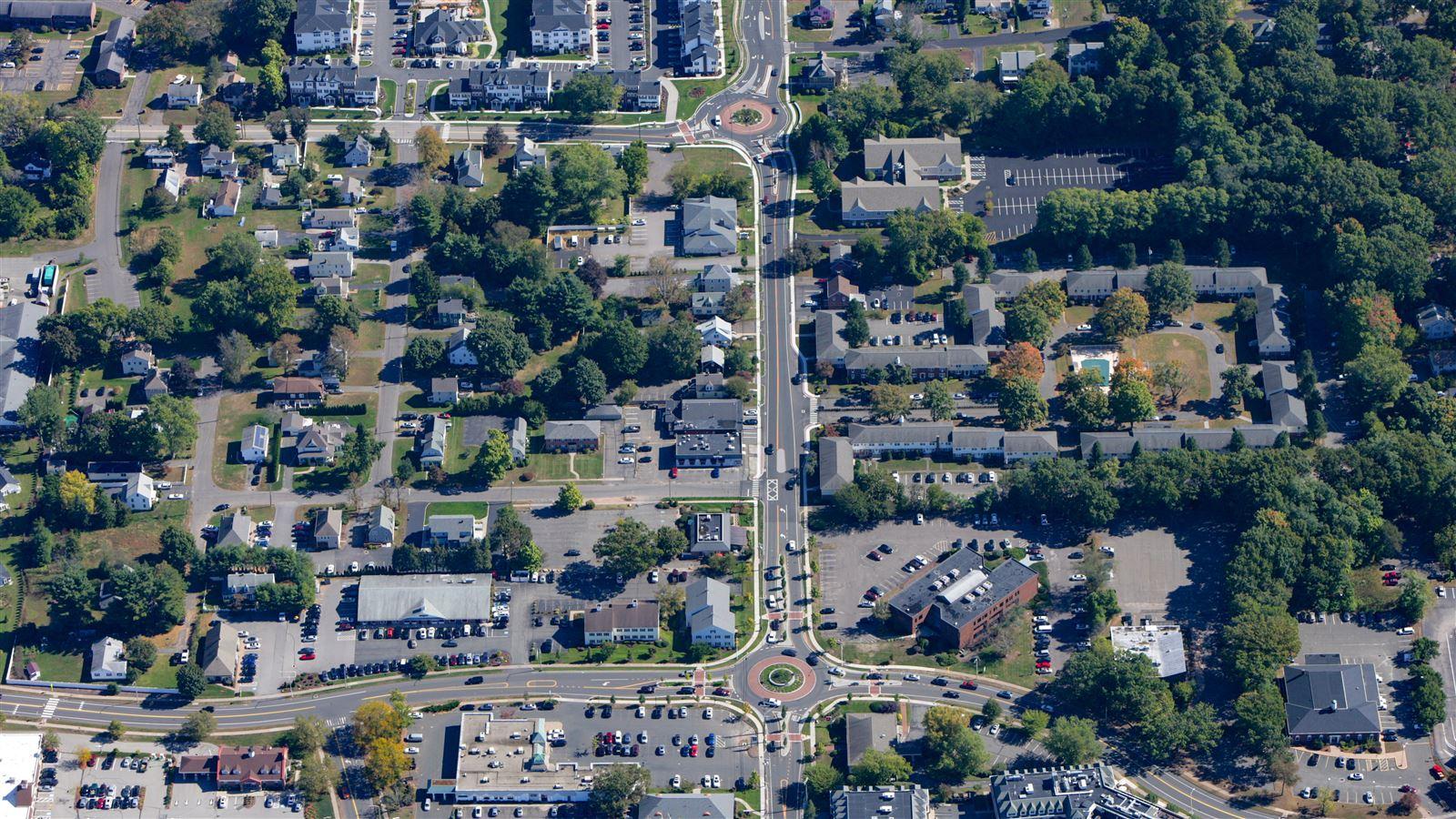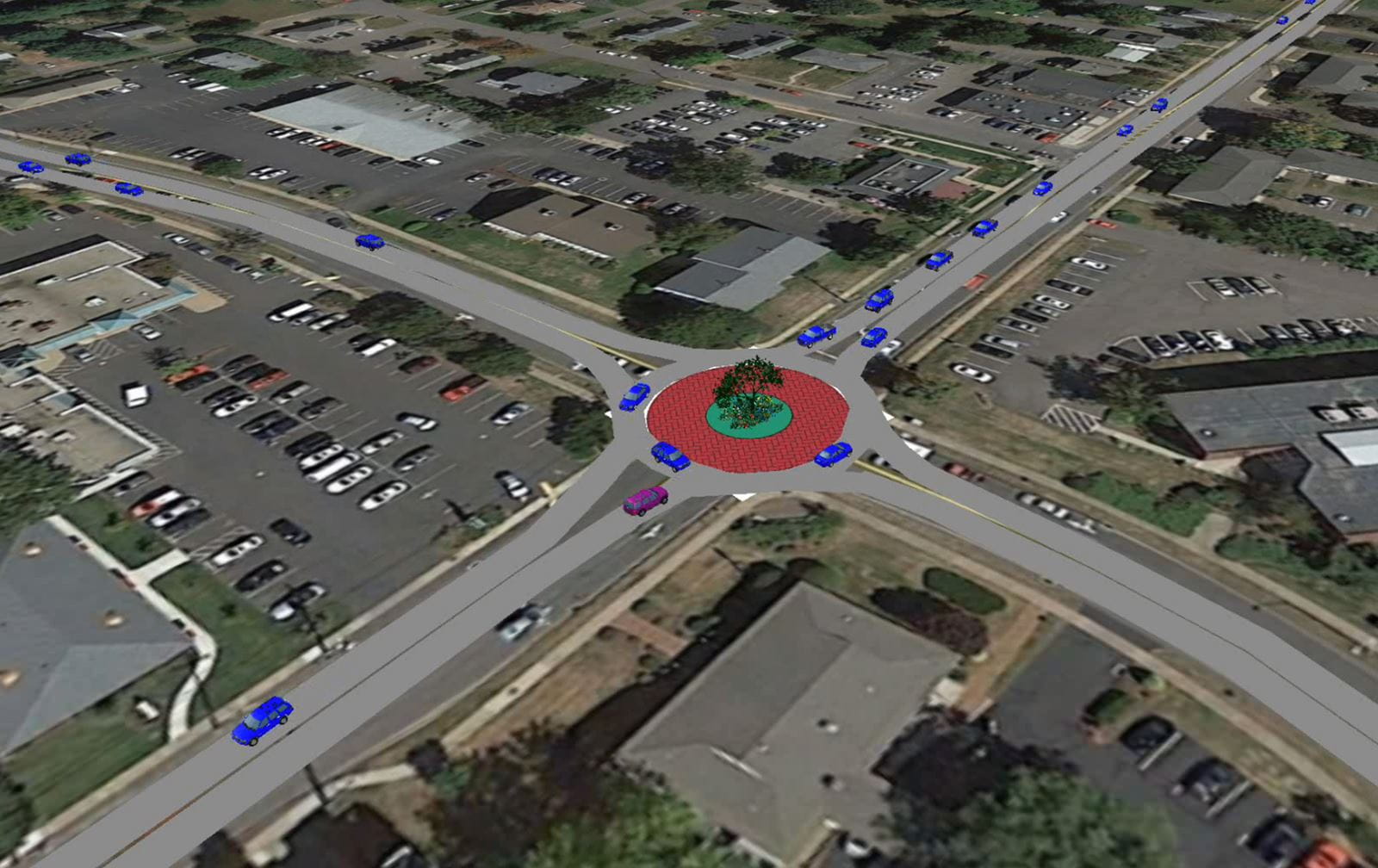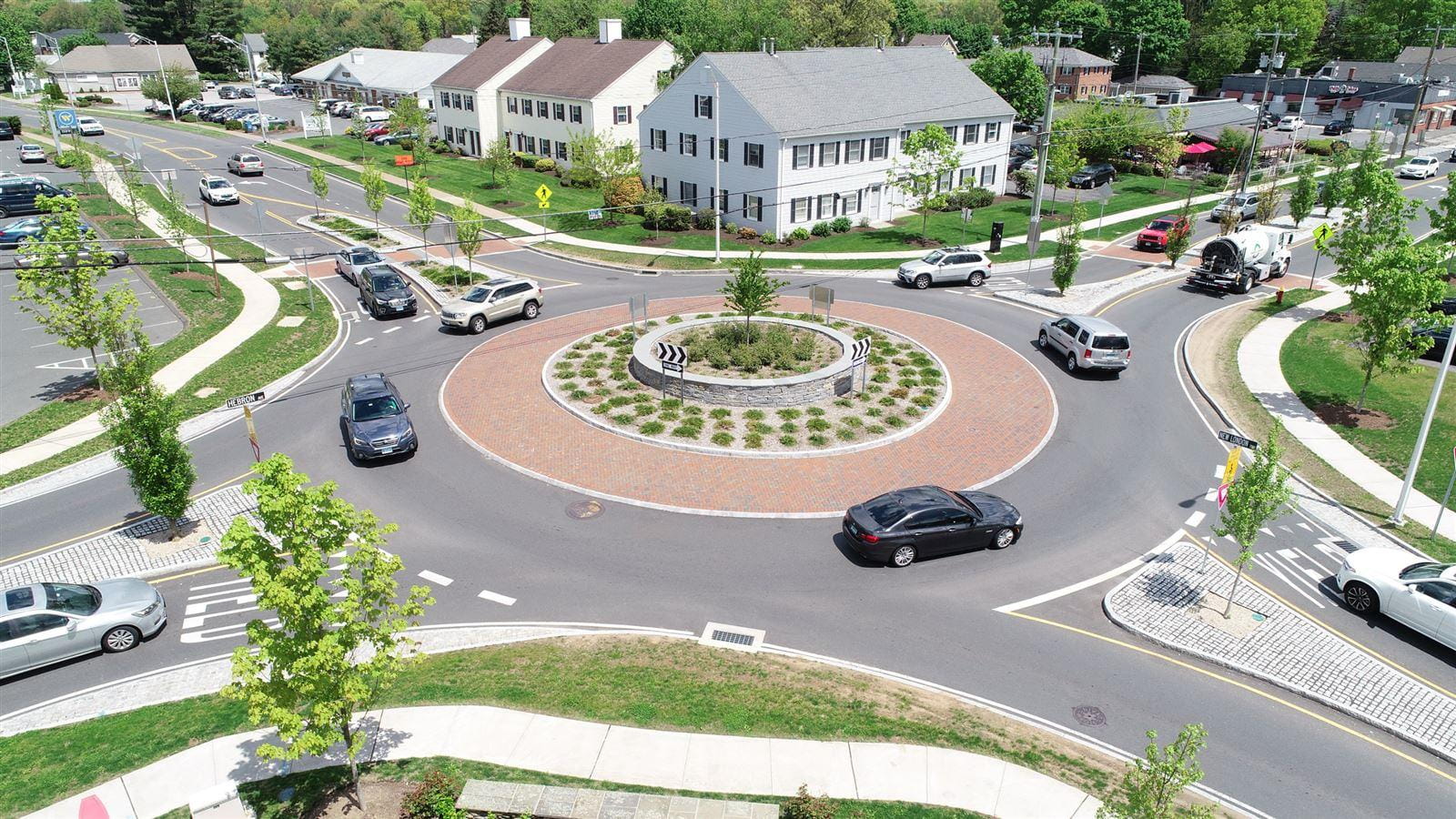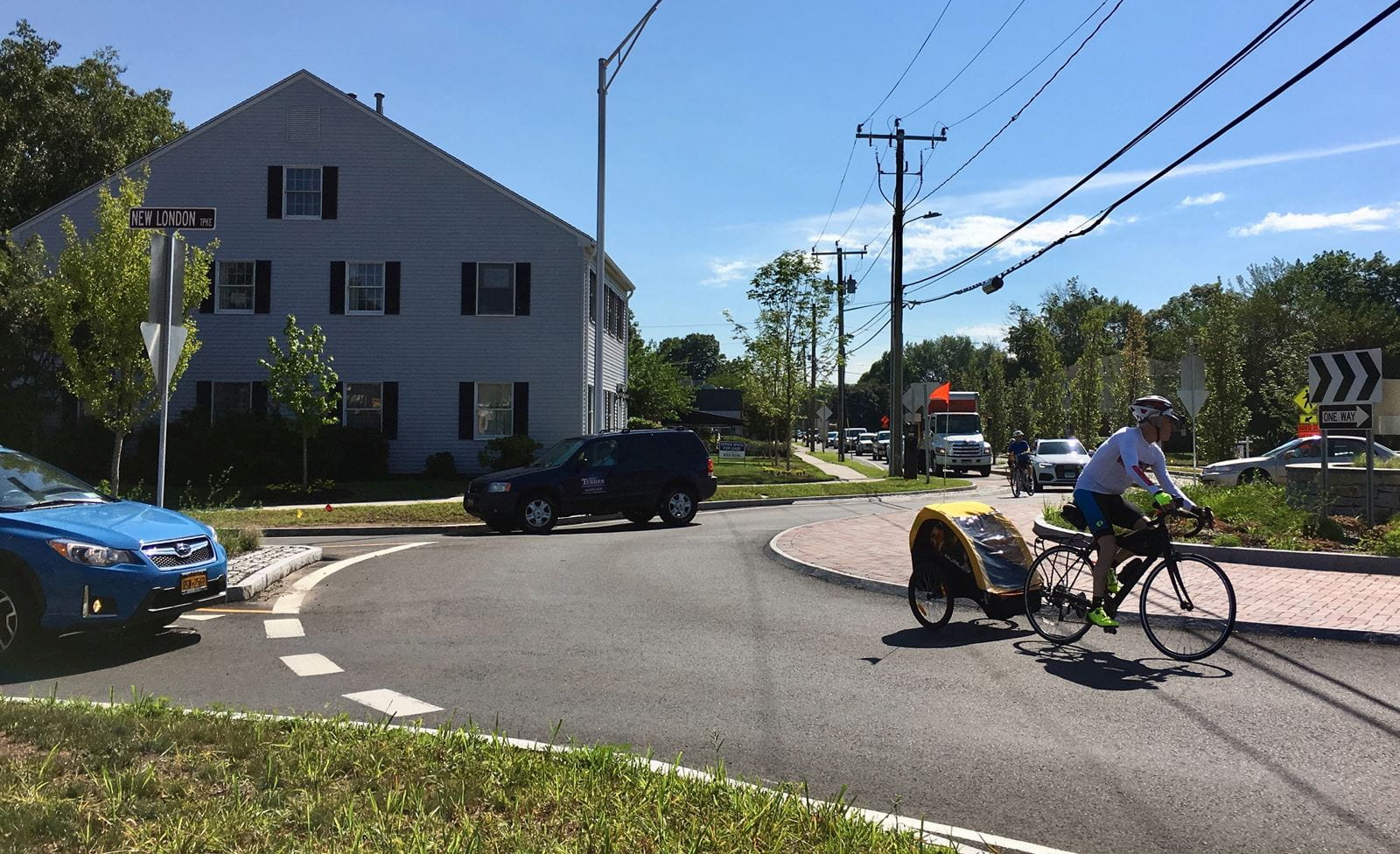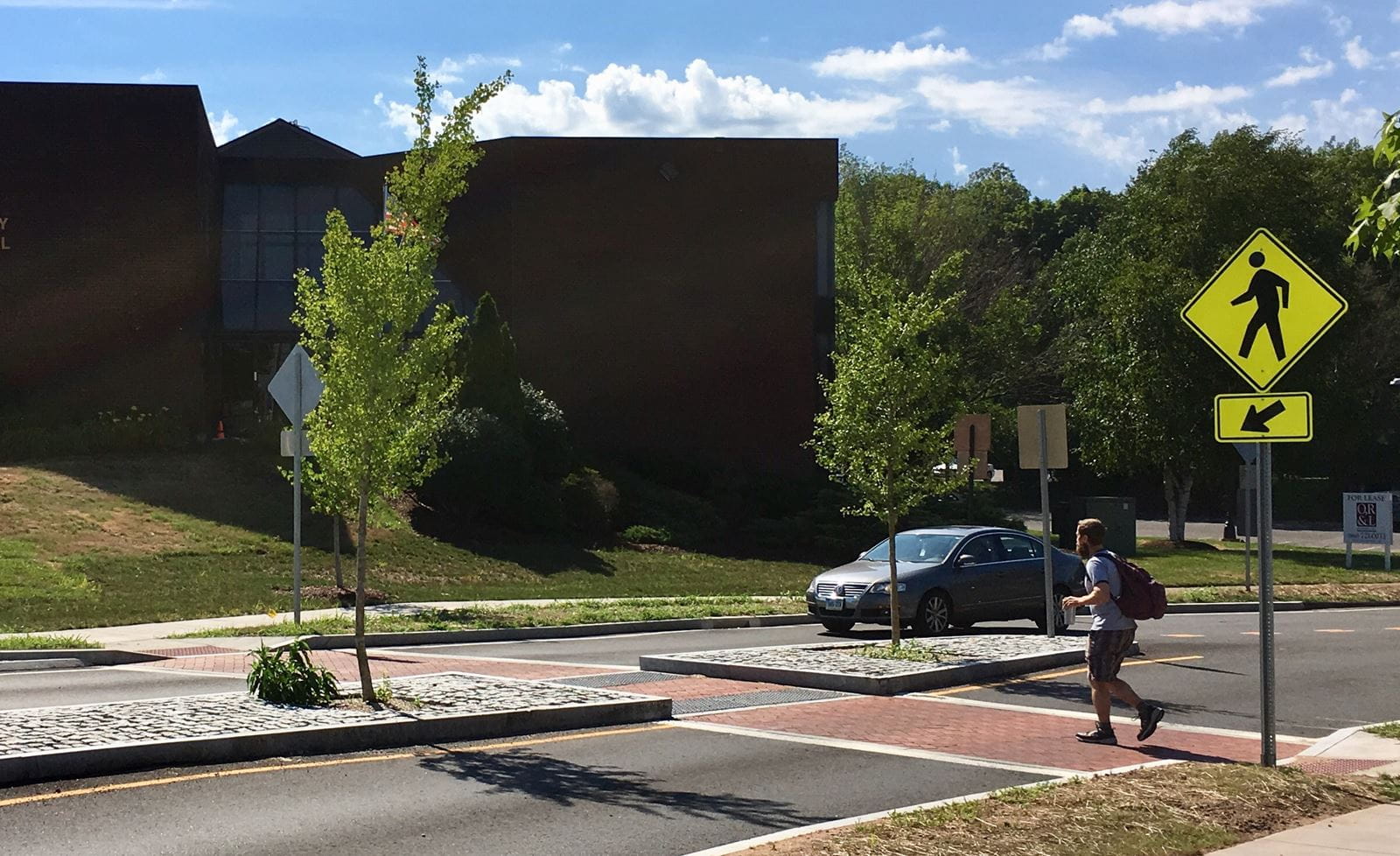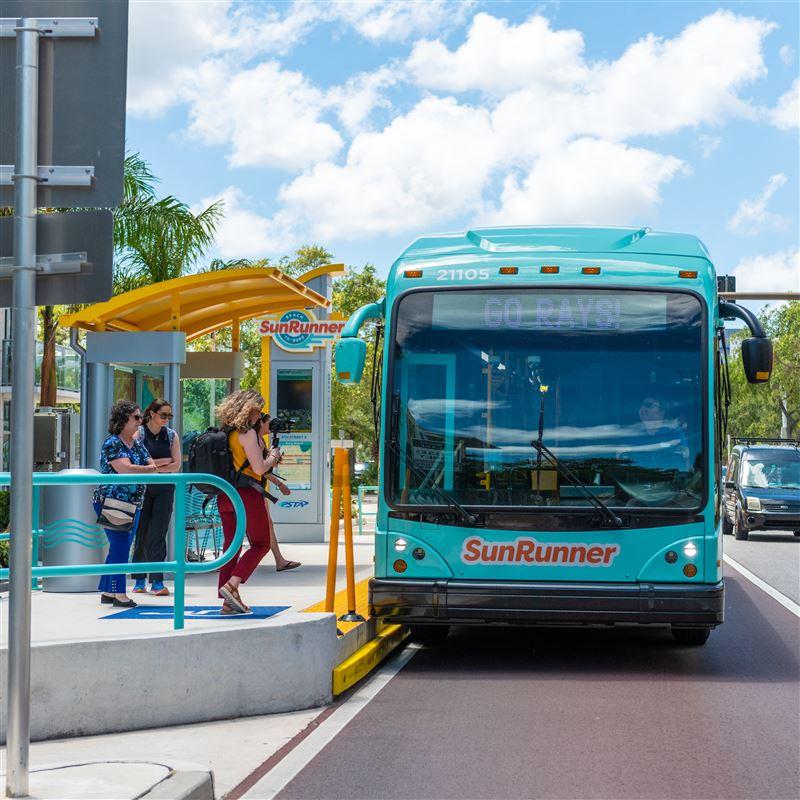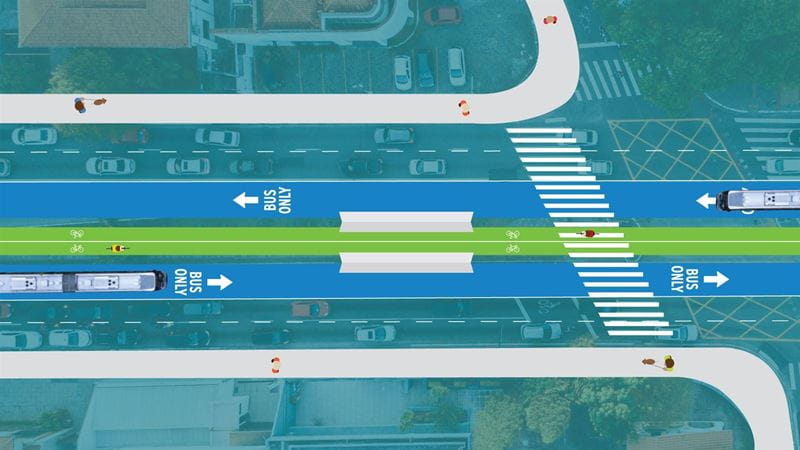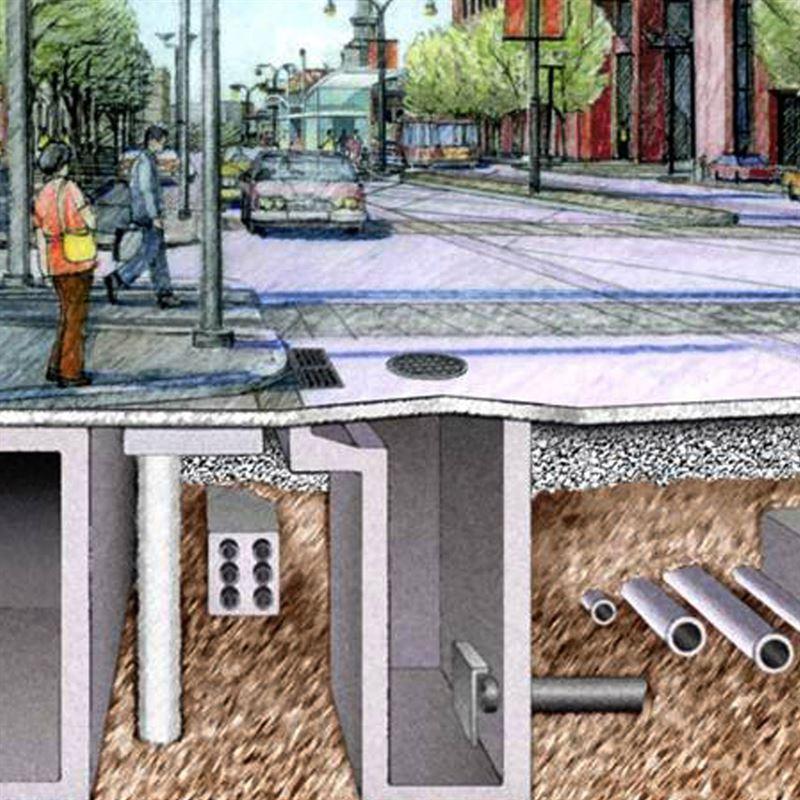Modern Roundabout Design for a Growing Connecticut Community
Roundabouts are powerful transportation design features: they enhance safety and calm traffic while keeping vehicles moving. Not only do they reduce the number of conflict points and vehicle travel speeds, which results in fewer crashes and near misses, single lane modern roundabouts also decrease the pedestrian crossing distance, so that pedestrians only need to cross one lane and one direction of traffic at a time. Compared to signals and stop signs, roundabouts contribute fewer vehicle gas emissions, since cars don’t need to start and stop as frequently. And because they often function as the gateway to a town center and are likely situated in the middle of the central business district, modern roundabouts should be well-designed and include accommodation for all users.
Glastonbury's Hebron Avenue corridor functions as the town’s gateway to retail and restaurant destinations, carrying around 20,000 vehicles a day. But with heavy traffic congestion and an unsignalized intersection at House Street with one of the highest crash rates in town, Hebron Avenue was due for a transformation. The town worked with CDM Smith’s complete corridors team to design a solution that incorporated safety, multi-modal right-of-way access, constructability and aesthetics to improve operations and mobility for residents.
“It was very important for us to recognize that this project was multi-disciplinary and required integration of several design elements to make it a complete corridor” says Becca Hall, PE, PTOE and traffic engineer on the project. “As a Glastonbury resident, I have seen Hebron Avenue become a more vibrant corridor with new businesses like Trader Joe’s, One Glastonbury Place, and Hartford Baking Company. During busy periods, like the midday lunch hour, I have noticed that driving through this corridor is much easier.”
Increasing Safety, Enhancing Capacity and Mitigating Congestion
CDM Smith conducted detailed traffic capacity analysis and microsimulations using VISSIM software to confirm that modern roundabouts were the preferred traffic control solution and to verify the number of travel lanes required. A thorough analysis was also completed to ensure that there were no adverse impacts to Hebron Avenue’s adjacent intersections.
The team coordinated closely with project stakeholders through Town Council meetings, utilizing meetings to present before and after visualizations to show the public what the intersection would look like after construction was complete. Concept sketches and a technical memorandum outlining the benefits of roundabouts were also developed to show the community how they could benefit from the modern design.
With safety remaining one of the project’s main improvement priorities, Hebron Avenue’s design used modern roundabout principles to reduce vehicle speeds, and provide pedestrian and bicyclist accommodations.
“Both motorist and pedestrian safety have been markedly improved in the Hebron Avenue corridor and the town is very much pleased with the resulting level of service,” says Daniel Pennington, Glastonbury’s town engineer and manager of physical services.
The Center for Latino Progress (CPRF) agrees that the roundabout’s design and application is a winner. “Overall a great design and application of a modern roundabout. The roundabout slows traffic and also provides for smoother flow than a signalized intersection. The car speeds make it much safer and easier for a pedestrian and bicycle rider to get through the intersection safely and comfortably,” writes CPRF.
Facilitating Community Improvements and Promoting Aesthetic Design
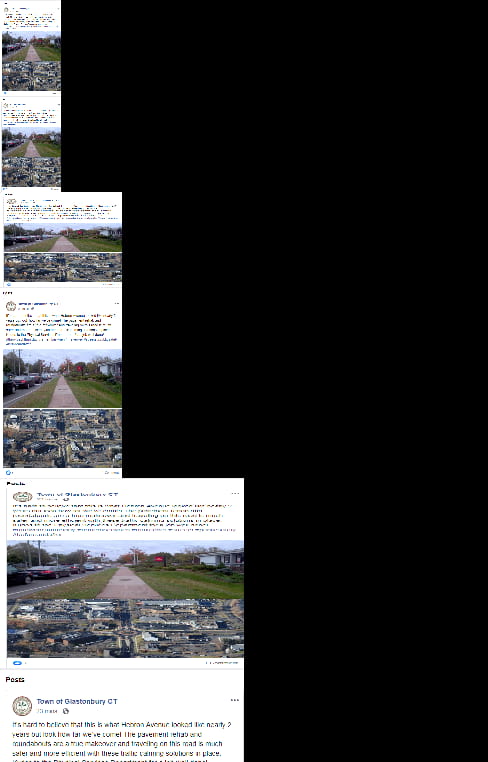 For the Glastonbury community, it was critical that the design team maintain traffic flow and business access during construction. The design team developed traffic maintenance plans to accommodate staged construction while maintaining existing traffic movements to limit detours and impacts to businesses, town events, and festivals. To accommodate businesses in the area, the project’s roundabouts were designed with multiple styles of truck aprons and splitter island treatments to allow ample truck movement.
For the Glastonbury community, it was critical that the design team maintain traffic flow and business access during construction. The design team developed traffic maintenance plans to accommodate staged construction while maintaining existing traffic movements to limit detours and impacts to businesses, town events, and festivals. To accommodate businesses in the area, the project’s roundabouts were designed with multiple styles of truck aprons and splitter island treatments to allow ample truck movement.
Design components included granite and brick islands, landscape up-lighting, street lighting, landscaping with an irrigation system to reduce maintenance, and decorative stone walls made with stone from local quarries. These design choices also assisted in the control of sight lines, vehicle channelization and visibility of all users, creating a cohesive and walkable town center.
Glastonbury has embraced the inclusion of the modern roundabouts with the installation of an aerial photograph of the roundabout in their newly constructed Town Hall entrance and the publishing of a “throwback Thursday” photograph on the town’s Facebook page describing the improved travel conditions along the corridor.
Thanks to an integrated approach that allowed the town to design and plan for a modern transportation solution that improved access, safety, economic vitality and community inclusion, Glastonbury is enjoying a safer and more sustainable Hebron Avenue.
Both motorist and pedestrian safety have been markedly improved in the Hebron Avenue corridor and the town is very much pleased with the resulting level of service.

As a Glastonbury resident, I have seen Hebron Avenue become a more vibrant corridor; driving through this corridor is much easier.

